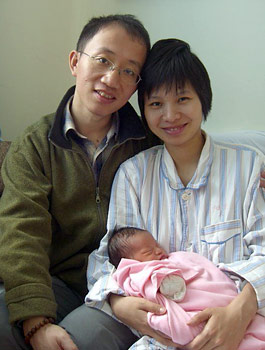Dissident’s Arrest Hints at Olympic Crackdown
BEIJING — When state security agents burst into his apartment last month, Hu Jia was chatting on Skype, the Internet-based telephone system. Mr. Hu’s computer was his most potent tool. He disseminated information about human rights cases, peasant protests and other politically touchy topics even though he often lived under de facto house arrest.
 |
That ended on Dec. 27. Mr. Hu was dragged away on charges of subverting state power while Ms. Zeng was bathing their newborn daughter, Qianci. Telephone and Internet connections to the apartment were severed. Mother and daughter are now under house arrest. Qianci, barely 2 months old, is probably the youngest political prisoner in China.
For human rights advocates and Chinese dissidents, Mr. Hu’s detention is the most telling example of what they describe as a broadening crackdown on dissent as Beijing prepares to play host to the Olympic Games in August. In recent months, several dissidents have been jailed, including a former factory worker in northeastern China who collected 10,000 signatures after posting an online petition titled “We Want Human Rights, Not the Olympics.”

